I want to sample from the posterior, where LambdaA and LambdaB are exponential rates of A and B. Also, y is the observations of the r.v.'s.
The posterior is given by
and for numerical reasons, i am taking the log of this function.
Data:
n<-100
y<- c(rexp(n))
Logarithm of posterior:
dmix<-function(LambdaA,LambdaB,w){
ifelse( LambdaA<=0|LambdaB<=0|w<0|w>1 ,0,log(w*LambdaA*LambdaB*exp(-2*(LambdaA+LambdaB))*prod(w*LambdaA*exp(-
LambdaA*y) + (1-w)*LambdaB*exp(-LambdaB*y)) ))}
U-values
U.lambdaB <- runif(1)
U.lambdaA<- runif(1)
U.w<- runif(1)
Count steps
REJLambdaB <- 1
REJw <- 1
REJLambdaA<-1
Initial points
LambdaB <- LambdaA<- w<- numeric(n)
LambdaA[1]<-0.5
LambdaB[1] <- 0.5
w[1] <- 0.5
Random walk MH algorithm, updating each component at a time:
for (t in 2:n){
LambdaBprop<- rnorm(1,LB[t-1],0.5)
wprop<- rnorm(1,w[t-1],0.5)
LambdaAprop<- rnorm(1,LB[t-1],0.5)
logalpha1 = dmix(LambdaAprop,LambdaB[t-1],w[t-1])-dmix(LambdaA[t-1],LambdaB[t-
1],w[t-1])
logalpha2 = dmix(LambdaA[t-1],LambdaBprop,w[t-1])-dmix(LA[t-1],LB[t-1],w[t-
1])
if (!is.null(log(U.lambdaB) > logalpha2))
{LambdaB[t] <- LambdaBprop} ## accepted
else{LambdaB[t] <- LambdaB[t-1] ##rejected
REJLambdaB<-REJLambdaB+1}
if (!is.null(log(U.lambdaA) > logalpha1))
{LambdaA[t]<-LambdaAprop}
else {LambdaA[t]<-LambdaA[t-1]
REJLambdaA<-REJLambdaA+1}
if (w[t]<0|w[t]>1)
{w[t]<-w[t-1]}
else {w[t]<-wprop
REJw<-REJw+1}
}
Ultimately, I am having problems with my posterior since I keep getting either infinity or 0's when evaluating logalpha's. Note that i am looking to compare log($\alpha(x'|x))$ with log(U). Any help to get this code to work ?

